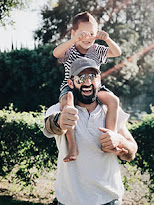The Caregiving Journey
by Kathy Lupfer-Nielsen
When looking around our small rural communities it is sometimes surprising to find out how many to our friends and neighbors are currently providing care for a family member, a neighborhood friend or a child with special needs. November is National Family Caregivers Month and a good time to discuss this growing issue.
When looking around our small rural communities it is sometimes surprising to find out how many to our friends and neighbors are currently providing care for a family member, a neighborhood friend or a child with special needs. November is National Family Caregivers Month and a good time to discuss this growing issue.
Rosalynn Carter once commented, “There are only four kinds of people in the world - those who have been caregivers, those who are currently caregivers, those who will be caregivers, and those who will need caregivers.”
Each year, more and more Americans are caring for a loved one with a chronic condition, disability, or the frailties of old age. There are as many as 90 million family caregivers in the U.S. today. Can you believe that two out of every 5 adults are family caregivers? Alzheimer’s is driving the numbers up with more than 15 million family caregivers caring for more than 5 million loved ones.
An interesting fact…as many as 1 million Americans are caring for service members from the Iraq and Afghanistan wars who are suffering from traumatic brain injury, post-traumatic stress disorder, or other wounds and illnesses.
And another interesting fact…statistically, men are now almost as likely as women to say they are family caregivers. Even young Americans between the ages 18 and 29 are caregiving as well (36%), including 1 million young people who care for loved ones with Alzheimer’s.
Family caregiving is serious work with almost half performing complex medical/nursing tasks for their loved ones – such as managing multiple medications, providing wound care, and operating specialized medical equipment. Family caregiving, with assistance from specialized agencies, contributes to the nation’s long-term care system by providing $450 billion worth of unpaid care annually.
 Caregivers need to
find some good resources. Contact your
local health department, hospital, hospice group, family minister, or see if
there is a local support group. The
internet can provide good information for caregiving also tips for taking care
of themselves…one can’t be a good caregiver if you aren’t healthy yourself! Getting some
exercise daily is vital. Make dealing
with your stress and other emotional issues a priority. You might need to find a counselor or an
objective person to talk with. They won’t be able to make any problems go away,
but they can help you learn to deal with the transitions in your family life.
Caregivers need to
find some good resources. Contact your
local health department, hospital, hospice group, family minister, or see if
there is a local support group. The
internet can provide good information for caregiving also tips for taking care
of themselves…one can’t be a good caregiver if you aren’t healthy yourself! Getting some
exercise daily is vital. Make dealing
with your stress and other emotional issues a priority. You might need to find a counselor or an
objective person to talk with. They won’t be able to make any problems go away,
but they can help you learn to deal with the transitions in your family life.Resources that might be helpful are www.caregiving.org, http://www.huffingtonpost.com/tag/national-family-caregivers-month and http://www.extension.org/family_caregiving.
Kathy Lupfer-Nielsen is a Family Consumer Sciences Extension Agent for the Post Rock District in north central Kansas.








